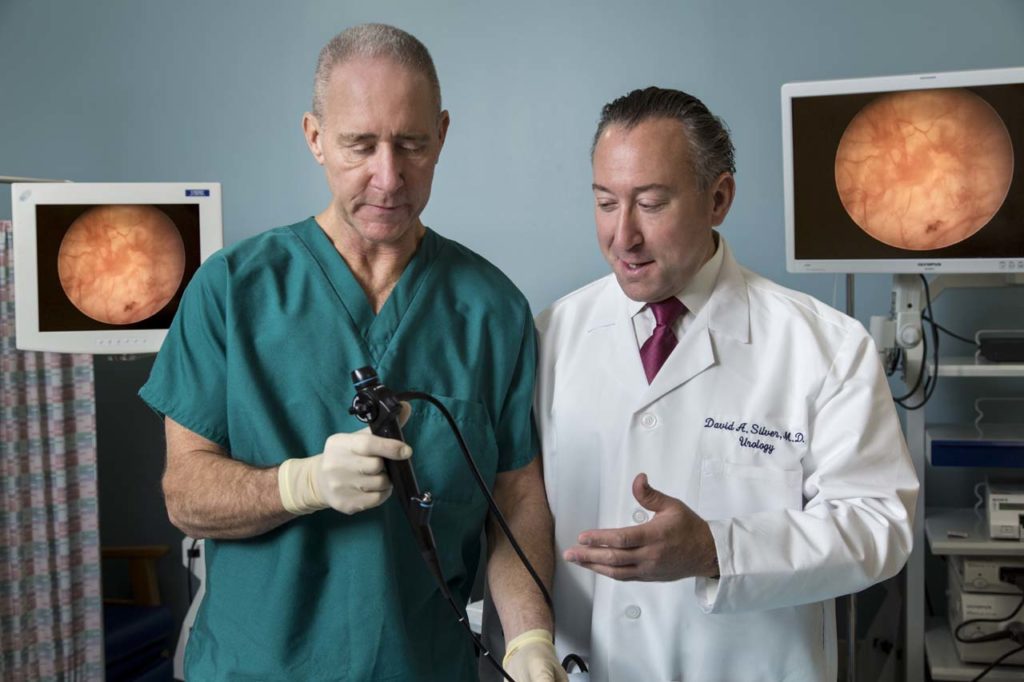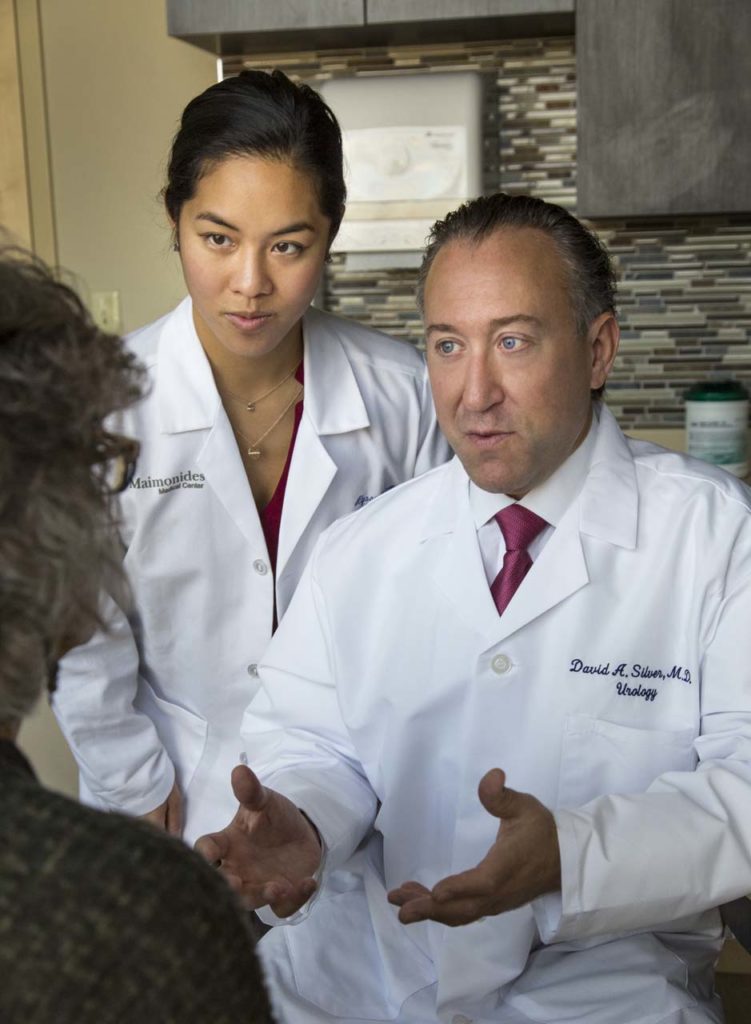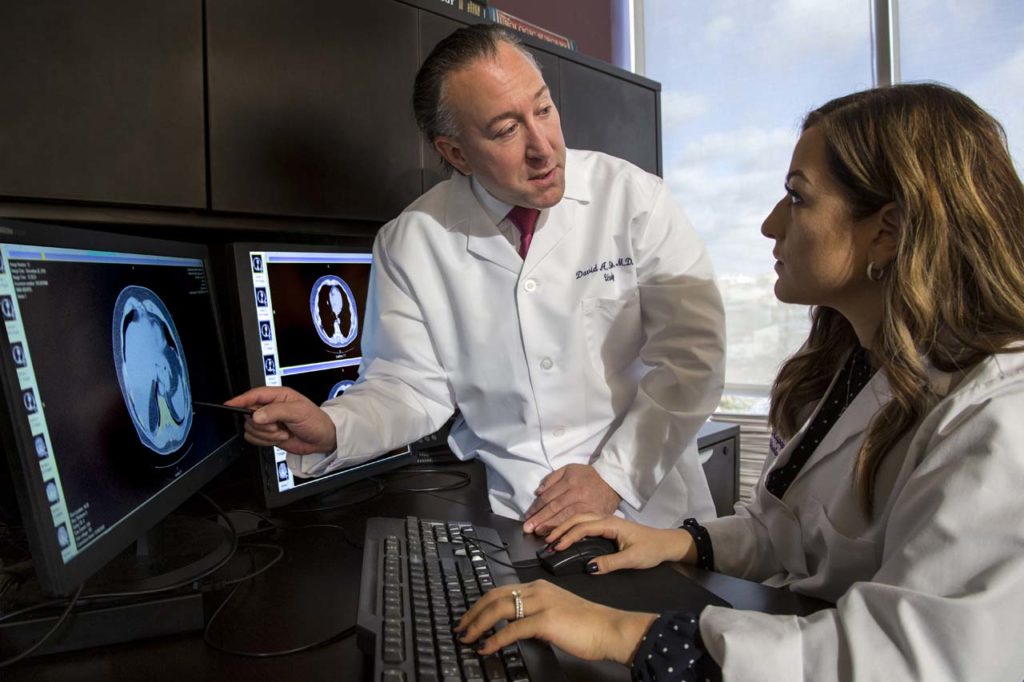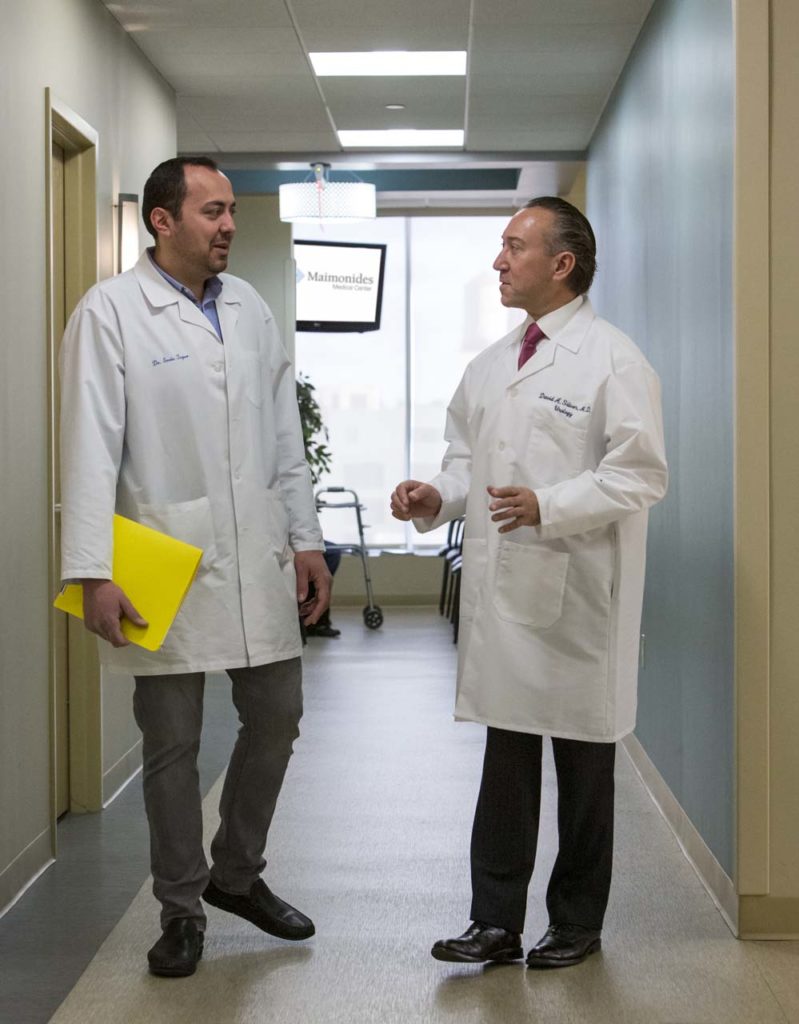HOW MAIMONIDES MEDICAL CENTER’S DIVISION OF UROLOGY AND NEW PROSTATE CENTER REMAIN AT THE FOREFRONT OF MINIMALLY INVASIVE AND OTHER NEW TREATMENT TECHNIQUES
BY JESSICA JONES GORMAN • PHOTOS © AMESSÉ PHOTOGRAPHY
When the Division of Urology was created more than 40 years ago at Maimonides Medical Center, open surgical procedures were employed to treat most diseases and disorders of the kidneys, bladder, prostate and genitourinary tract. But in the past four decades, extensive medical advances and a patient centered push to perform surgery through minimally invasive means have propelled this specialty into one that minimizes the associated trauma of more traditional surgeries and allows for quicker recovery times. Maimonides has been at the forefront of these changes.

“During my fellowship, all surgeries were open procedures,” noted Dr. David Silver, Chief of the Division of Urology at Maimonides and Director of Brooklyn’s first and only Prostate Center opening this spring at Maimonides. Dr. Silver has been a core part of the institution’s Urology Division since 1989. “But thanks to advances in both medicine and technology, there’s been a major shift in the past few years. I can honestly not remember the last time I performed an open nephrectomy [the removal of a kidney], because all cases are now performed laparoscopically. It’s a dramatic change that has benefitted both the patient and the physician.” Amplifying the benefits of such new procedures, he added, has been the addition of image guidance and robotic techniques.
“Urology is a dramatically different field now, and Maimonides is on the front lines,” Silver noted. “We have two robotic surgery operating rooms, two hybrid operating rooms with integrated real time imaging, and a dedicated urology nursing team with a nurse team leader.”
There’s also an array of 21st century equipment like a green light laser used to treat benign prostatic hyperplasia (an enlarged prostate), two daVinci Xi surgical robots, and a state of the art video urodynamics laboratory all of which assist Silver and his staff with the diagnosis and treatment of a range of illness.

“We have expertise in sexual medicine, male and female urinary incontinence, erectile dysfunction, voiding dysfunction, Peyronie’s disease (the development of fibrous scar tissue inside the penis that causes curved, painful erections), urethral strictures, and congenital abnormalities,” he detailed. “Our oncology specialists treat prostate, bladder, kidney, adrenal, and testicular cancers, and our physicians are pioneers in the application of robotic assisted laparoscopic surgical techniques.”
Collectively, Maimonides’ pediatric urologists have more than 70 years of experience caring for complex congenital abnormalities and acquired illnesses in newborns, infants, and children. Conditions such as bladder extrophy, hypospadias, hernias, vesicoureteral reflux, and uretero pelvic junction obstructions are cared for by the hospital’s specialists.
“Our pediatric team is incomparable, made up of a number of skilled physicians who are experts at diagnosing and treating children’s urologic disorders,” Silver said.
Though born in Ohio, Dr. Silver, , the son of an aerospace engineer, grew up in Denver and moved to New York to attend medical school. He earned his medical degree from the Albert Einstein College of Medicine before completing an internship and residency at Maimonides, as well as a fellowship at Memorial Sloan Kettering Cancer Center, before launching his career at Maimonides over 20 years ago.
“I guess you could say I’m a lifer, but it’s a great hospital and I truly love working here,” he said with a smile. “It’s a very unique institution the largest non-university house staff teaching hospital in the country and virtually everyone here is double and triple boarded in their specialty, so the amount of brain power is incredible,” adding that this was among the first hospitals in New York City to use robotic technology.

“We’ve performed thousands of successful robotic cases, cementing our status as a leader in this field,” said Silver. “Our team has had exposure to a variety of techniques and complex cases. We are the largest and most diverse specialized urology faculty in Brooklyn: with 12 urologists, including four oncologists and two pediatric specialists, we are able to successfully treat a range of patients.”
And even as Silver further described how major open surgery is disappearing from his specialty, he pointed to further anticipated changes; in the next several years, he said, urology could follow the lead of other specialties that now employ methods of focal therapy and ablation to destroy tumors.
“Not all cancers are the same, so there cannot really be an industry standard,” he said. “But we are always trying to see around the corner; thinking of what’s next. And just as with breast cancer, we now have the newest advancement in focal ultrasound therapy for prostate cancer, precisely treating the tumor alone instead of removing the whole gland. Maimonides is the first on the East Coast to offer this most advanced treatment option.”

“The biggest problem with prostate cancer has been that it is difficult to fully define the extent and biology of the disease,” said Silver, pointing out that treatment traditionally necessitated whole gland therapy, with associated sexual and urinary side effects. “In the prostate, cancer tends to start at multiple locations within the gland, and the biology can be unpredictable. New MRI technologies are already helping us to identify the exact location of aggressive tumors. The MRI can be fused with real time ultrasound, allowing precise sampling and focal treatment that will minimize treatment related impotence and incontinence. It’s a groundbreaking technology that will only advance in the future.”
Maimonides Medical Center
4802 10th Avenue / 718.283.6000
maimonidesmed.org
